- Home
- Arthur Conan Doyle
Sherlock Holmes Mystery Magazine #10 Page 11
Sherlock Holmes Mystery Magazine #10 Read online
Page 11
“Allow me to present Mr. Sherlock Holmes. He is our Horatio for this production. Holmes, this is Lawrence—”
“Lawrence Barrett,” Holmes interrupted smoothly. “I had the pleasure of seeing your Cassius once—I found it to be the definitive interpretation of the role.”
“You flatter me, sir,” Barrett replied, coloring. He had a broad Irish face, with a Cupid’s bow mouth, rosy cheeks and a fair complexion that betrayed his emotions. (It was rumored his father’s name was Brannigan, but that he changed it for his stage career.)
“I think not,” Holmes answered, “though your modesty becomes you.”
I held my tongue—Barrett was a gifted man, but modesty was not in his repertoire.
“In any case,” Holmes continued, “It is an honor to meet you.”
“Thank you, sir,” Barrett replied, somewhat placated, but I sensed his uneasiness.
“Won’t you join us?” I said.
“No, thank you—I have urgent business; however, I heard of your terrible accident, and I wished to offer you my services as Polonius.”
(Barrett was five years younger than myself—as my critics liked to point out, I was long in the tooth for the role of Hamlet, though I continued to draw crowds in that role more than any other.)
“What a capital idea,” I replied.
“I have just ended an out-of-town engagement, as it happens, and am quite free at the moment,” Barrett said, all the while flicking his cape nervously. It occurred to me that possibly there was no “out of town engagement,” and that Larry was in need of a job. I knew the man too well to puncture his pride needlessly, however, so I nodded seriously.
“How kind of you to think of me. Can you start immediately?”
“Indeed I can,” he replied.
“Tomorrow at noon, then?”
“That will be fine. And now if you’ll excuse me, I have some business to attend to. It was a pleasure meeting you,” he said, addressing Holmes.
“The pleasure was all mine,” Holmes replied.
“Until tomorrow, then,” Barrett said, bowing slightly.
“Yes—thank you, Larry,” I answered.
His mouth curled upwards in a smile, and again I was reminded of a cat—precise, wary, watchful. “Always a pleasure to help out a friend.”
“He does indeed have a lean and hungry look,” Holmes remarked when Barrett had gone.
“Yes,” I answered. “He was born to play Cassius.”
“How long was he in the military?”
By now, I had become so used to Holmes’s pronouncements that I displayed no reaction.
“About four years, I believe, during the war,” I responded casually.
“An officer—a captain, perhaps, or major,” Holmes said.
“Captain.”
He looked at me as if expecting the usual questions and pronouncements of astonishment, but I refused to play along.
“Now then,” I said, enjoying the faint expression of disappointment that crossed his face, “what are you going to order for dinner?”
But we were both exhausted emotionally and physically, and neither of us ate much. By the time we were ready to retire I was yawning uncontrollably. I settled into my comfortable four-poster bed and closed my eyes, but before I drifted off to sleep, two unwelcome thoughts occurred to me: that as a cavalry officer, Barrett was presumably a very good shot, and furthermore, perhaps not all was as forgiven as I had hoped.
* * * *
My mood was not improved when I arrived at my dressing room the next day to find a piece of paper nailed to the door. Trembling, I plucked it off and read it, instantly recognizing Richard’s Act III speech from “Richard II”:
For God’s sake, let us sit upon the ground
And tell sad stories of the death of kings;
How some have been deposed; some slain in war,
Some haunted by the ghosts they have deposed;
Some poisoned by their wives: some sleeping killed;
All murdered.
I turned to see Holmes coming toward me, and handed him the note without speaking. He glanced at it, then shook his head.
“Someone is toying with you.”
“Maybe it is time to admit defeat and cancel the production,” I said reluctantly. I could no longer think clearly; I was physically and spiritually exhausted.
“If you can grant me one more day,” Holmes said, “I think I can flush out your assailant. However, should you decide to give up, I certainly understand—”
“Very well,” I interrupted him. “At the end of today, though, I must make the decision.”
The bell rang for rehearsal, and we headed off down the corridor toward the stage. Today we were to rehearse the final duel scene; I for one was not sure I was up to the task.
* * * *
All good actors must immerse themselves in the emotional life of their character, while keeping a part of their brain detached, so they may remember their lines, as well as execute any blocking and stage business. This “double life” extends to their attitude toward their fellow actors: Othello, for example, must experience all the torment of jealous passion toward poor Desdemona, at the same time taking care not to actually strangle her during their final scene. Of course, these lines have been crossed—I myself have more than once had to restrain my impulse to actually choke another actor onstage, and have come away with bruises more than once from a fight scene that got out of hand.
Nowhere is a combination of control and restraint more necessary than in the final scene of Hamlet. During the duel between Laertes and Hamlet in front of the entire Danish court, each must give and receive a nick of the sword which must appear to pierce the skin. Unbeknownst to Hamlet, Laertes’s sword has been dipped in a deadly poison, so when Hamlet receives what he imagines to be nothing more than a tiny scratch, he has in fact been poisoned. Later, when Hamlet seizes Laertes’s sword—still unaware it is coated with poison—he inflicts a minor cut upon his friend, not knowing he has fatally wounded him.
It has always been my desire to create as much realism as possible, so I provide myself and Laertes with a small pouch of stage blood to be held in the left hand during the sword play—then, at the proper time, the pouch is clapped on the area of the “wound,” creating a very realistic effect for the audience. I have heard gasps from the gallery during these moments—a sound that is music to the ears of any actor/manager.
Nate Carlisle was a superior swordsman, and though my duel with him had been carefully staged, I was always on my guard. As we squared off for the duel, I thought I saw a gleam in his eyes I had not noticed before—or perhaps it was a trick of the light, the glare of the hot gas lamps catching his eye just so.
We crossed swords and began our duel. The actors playing members of the Danish court were on stage with us, including Gertrude and Claudius. I could see the rest of the company watching from the wings—including Lawrence Barrett, who was observing with a keen expression on his face. He had come to the theatre, even though his scenes were not scheduled for rehearsal.
It was not unusual for other actors to watch the duel scene, but for some reason I felt a shiver trickle down my spine as I touched swords with Nate.
At first, the scene ran exactly as we had rehearsed it—but when the moment came for the first “touch,” when Laertes nicks Hamlet with what turns out to be a fatal wound, to my surprise, Nate seemed to lose his balance, and his sword actually raked across my face.
My left cheek stinging, I brought my hand to my face. There was a murmur from the wings, and I thought I heard several of the women gasp.
“Sorry!” Nate panted. “I lost my balance. Are you all right?”
“I’m fine,” I replied.
“Shall we stop?”
“No, no,” I said. “Let’s continue.”
I glanced at Holmes, who, as Horatio, was standing to one side of the other Danish courtiers. I thought I saw him nod almost imperceptively, but perhaps I was mistaken. I returned to the duel.
>
It seemed to me that Nate was fighting with more vigor than usual—he huffed and sweated and leapt from side to side; more than once I had to dodge an unusually vigorous swipe of his sword. I almost stopped to ask what had gotten into him, but something inside me prevented it—a desire to not lose face in front of the rest of the company, maybe; or perhaps it was a darker, more self-destructive impulse. When the moment came for Hamlet and Laertes to exchange swords—thus giving Hamlet the poisoned sword, he suddenly changed the blocking and leapt toward me. Reacting completely on instinct, I dodged out of the way, dropped to the floor and rolled to the other side of the stage, only to come up to see him charging at me.
“Nate!” I panted. “For god’s sake, what are you doing?”
But he roared with rage and kept coming at me. I rolled in the other direction—I had dropped my sword and was defenseless. Backed up against the wall, I was cornered. I saw the glint of his steel blade headed toward my face, and closed my eyes, expecting the blow.
But it did not come.
When I opened my eyes, I saw Holmes had taken up my sword and was fighting with Nate.
“Holmes!” I cried.
“Stay clear!” he yelled back.
I had no choice but to obey. The blades were flashing silver in the stage lights, and to come anywhere near them was to risk serious injury. Though Holmes was clearly a skilled swordsman, Nate’s rage had turned him into a madman, and he sliced and jabbed with the fury of a man fighting to the death. It was all Holmes could do to stave off his vicious attack, parrying each thrust with an alert desperation. The rest of the company hovered in the wings, cowed by Nate’s rage. I grabbed a theatre page by the arm.
“Run and fetch the police!” I exclaimed.
The boy nodded at me, his eyes wide with terror.
“Now!” I bellowed. “RUN!”
He scampered down the stairs and out through the theatre toward the front entrance. I turned back to the stage, where to my horror I watched Nate back Holmes into the opposite corner of the stage.
“Now,” he panted, lifting his sword over his head, “you will die, too!”
Hardly aware of what I was doing, I sprang to my feet and hurled my body through the air, landing on Nate with a thud, knocking him to the ground. He writhed and fought like a rabid beast, clawing and kicking at me. But Holmes snatched his sword, and three or four other members of the cast—including Larry Barrett—threw themselves upon him, helping me to subdue him. We wrestled him to his feet—he continued to struggle, but he was outnumbered now, and we managed to hold him.
“Are you all right, Edwin?” Barrett asked, true concern in his voice.
“Yes, Larry—quite all right, thank you.”
Nate Carlisle strained against his captors, trying vainly to wrest himself free. “Damn you, Edwin Booth—why aren’t you dead?” he panted. To my surprise, his accent had changed—it was now decidedly Southern.
“I took the liberty of removing your sword from backstage and replacing it with another one,” Holmes said to him.
Nate turned his gaze on Holmes. “Damn you!” he gasped, still quite out of breath.
I stared at Holmes, confused.
“He had poisoned it,” Holmes told me. “So when he cut your face, he expected you to die—and when you didn’t, his plan was thrown off.”
I heard a collective gasp from the rest of the company.
“So it was no accident?” I said.
“Oh, no,” Holmes said. “Though he hoped it would look like one—just another unfortunate accident.”
Nate glared at Holmes and struggled, but his fellow actors held him firmly. “You—you—what are you, a wizard?”
“I am merely one who observes,” Holmes responded.
“I don’t understand, Nate,” I said. “Why would you want to kill me?”
“My dear Booth,” Holmes began, laying a hand on my shoulder.
“No—I want to hear,” I said, pulling away from him and facing Nate. “What I have I ever done to you?”
He wrenched a hand free and pulled a locket from his neck, throwing it at my feet. “This is my sister Daisy—the poor unfortunate girl your brother ruined. The day she died, I vowed a Booth would die to avenge her!”
“But what have I to do with any of this?”
“Your wretched brother discarded her like he did so many other women,” he replied in a voice choked with rage. “She never recovered, and when he shot Lincoln, she went mad from grief.”
“How is this my f-fault?” I stammered, my childhood affliction once again returning.
“Do you have any notion what it is like to endure the humiliation of Reconstruction? ‘Reconstruction’—ha! What a bitter joke!” He spat out the words, his eyes blazing with fury. “Lincoln was a tyrant, but when your brother killed him, the North took revenge upon us by humiliating us. If your cursed brother had not murdered that mountebank, things might have gone differently. My poor mother died of grief and hardship! She never recovered from my sister’s madness—I watched her steady decline, until at last she died of a broken heart.”
“But I could not have prevented my brother’s—”
“If you had not been so absorbed in your own career, your fame, you might have noticed what he was planning! You were as blind to your own kin as a cart horse!”
“B-but I—” Once again I began to stutter painfully.
Holmes stepped forward once again and laid a hand on my arm.
“There is nothing more to be learned from this man,” he said in a low voice. “His mind is addled.”
I knew he was right, yet I could not take my eyes from his face, red and twisted with fury. I felt I was somehow looking at my brother Johnny’s face. I was aware of Holmes’s hand on my arm, gently pulling me away, as half a dozen uniformed policemen strode purposefully down the aisles of the theatre. The assembled company stood watching them in silence as they climbed the stairs to the stage. It was as if we were the stunned spectators of a tragic play, waiting passively to see what would happen next.
“This is your man, Sergeant,” Holmes said to the burly, red-headed Sergeant.
The sergeant nodded and turned to his men, who quickly and expertly cuffed Carlisle’s hands behind his back and began to lead him away. He wrenched himself free for a moment and pivoted unsteadily back toward us.
“A curse on you and your family, Edwin Booth!” he managed to cry before the policemen dragged him away.
The red-haired sergeant approached me and coughed delicately.
“When you have a moment, we’d like to take a statement from you, Mr. Booth,” he said respectfully.
“Of course,” I replied, feeling light-leaded with the unreal sensation I was awaking from a horrible dream.
The sergeant turned to leave, then, appearing to think better of it, turned back again.
“Uh, I—that is, well, sir, I want to say how much I enjoyed your Brutus in Julius Caesar last week. My wife, she…well, I wonder, sir, if you would mind—perhaps this isn’t the time, but.…” He fumbled in his pocket and extracted a small black notebook. On the cover “NYPD” was embossed in gold lettering. “If you could just—it’s for my wife, you understand, sir.”
The sergeant’s face was a deep crimson, and he was sweating at the collar of his tight wool uniform.
“Of course, Sergeant,” I said, touched by his discomfort. I myself was often ill at ease in social situations, and though both of my Marys had been taken from me—the first by death, the second by madness—how well I knew the bliss of having a wife to come home to.
I signed the paper and pressed it into the Sergeant’s perspiring palms.
“Love her well,” I said. “Love her and care for her with all your heart.”
He looked at me, transparent pearls of sweat gathering on his broad forehead.
“I will—th-thank you, sir,” he stammered, running a hand through his bristle of red hair. He grasped my hand and shook it vigorously. “Best of luck, sir.�
��
With that, he turned and stumbled off after his officers. The company members stood in silence for a few moments, then a low murmur began among them. They all seemed to be in shock, understandably, and I called off rehearsal for the rest of the day. They were quiet at first, still stunned by the sudden violence, but by the time everyone had their coats on, they were bursting with questions and demands for explanations. Some of them were making plans to head off for Tom’s Tavern, a favorite watering-hole for theatre folks, run by a former actor named, improbably enough, Thomas Lawless. Several of them importuned Holmes and myself to join them. As is true of all actors, they thrived on drama no less than the sound of their own voices, and now that the danger had passed, they could savor the aftermath of all the excitement in endless discussions, digressions, and dissections—and, best of all, countless drafts of whatever Tom happened to have in stock.
However, I wanted nothing more than to sit and stare into the fireplace at the Players, a glass of brandy in my hand, the ever faithful Hector at my side.
* * * *
Holmes and I hailed a cab and made our way back to the club. I said very little during the ride, being preoccupied with my own thoughts. Perhaps sensing my need for silence, Holmes stared out the window into the darkening streets.
When we were settled in front of the fire, I spoke at last.
“I want to thank you for everything you have done, Holmes—I think it’s fair to say that you saved not only my life, but also—”
He silenced me with a wave of his hand. “I do not feel I was successful at all; after all, a man died because of my inability to anticipate the deviousness of this killer.”
“Poor Geoffrey,” I said. “He must have known something, and that’s why he was killed.”
“Yes,” Holmes agreed. “But what did he know?”
“Does it matter now?”
He frowned and drummed his fingers on the arm of his chair. “I am not yet satisfied that this affair is entirely over. There are one or two points I find most disturbing.”
“How did you know Nate had poisoned his sword?”
“After the first disaster with poor Geoffrey, I kept a very close eye on all the props—especially the swords. And I took the liberty of following Nate Carlisle after rehearsal yesterday, where he happened to pay a visit to a pharmacy.”

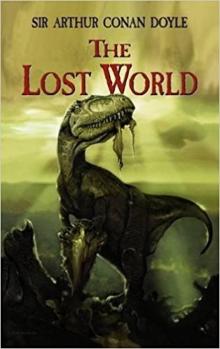 The Lost World
The Lost World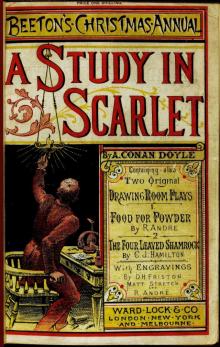 A Study in Scarlet
A Study in Scarlet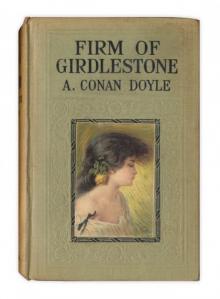 The Firm of Girdlestone
The Firm of Girdlestone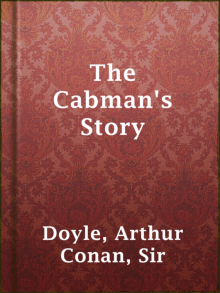 The Cabman's Story
The Cabman's Story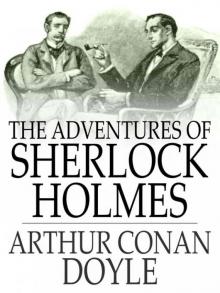 The Adventures of Sherlock Holmes
The Adventures of Sherlock Holmes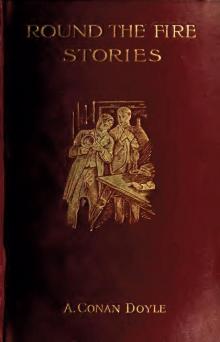 Round the Fire Stories
Round the Fire Stories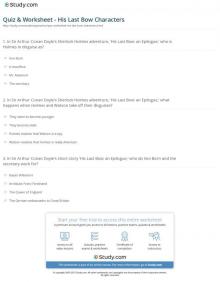 His Last Bow: An Epilogue of Sherlock Holmes
His Last Bow: An Epilogue of Sherlock Holmes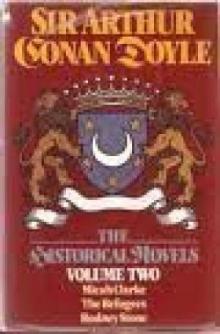 Micah Clarke
Micah Clarke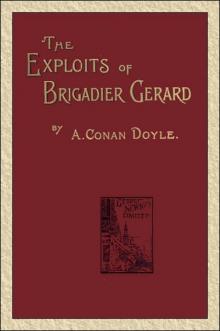 The Exploits of Brigadier Gerard
The Exploits of Brigadier Gerard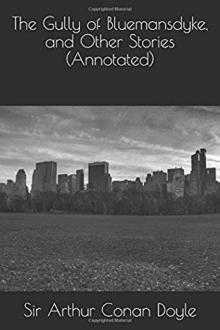 The Gully of Bluemansdyke, and Other stories
The Gully of Bluemansdyke, and Other stories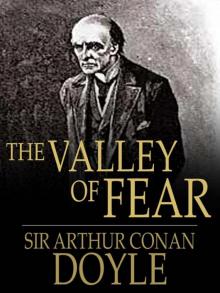 The Valley of Fear
The Valley of Fear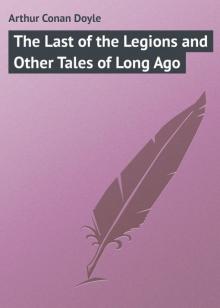 The Last of the Legions and Other Tales of Long Ago
The Last of the Legions and Other Tales of Long Ago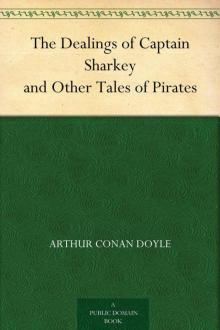 The Dealings of Captain Sharkey, and Other Tales of Pirates
The Dealings of Captain Sharkey, and Other Tales of Pirates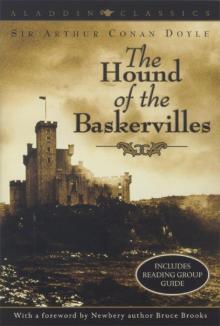 The Hound of the Baskervilles
The Hound of the Baskervilles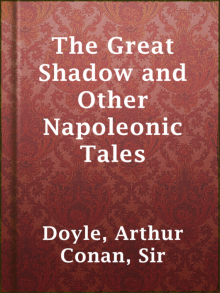 The Great Shadow and Other Napoleonic Tales
The Great Shadow and Other Napoleonic Tales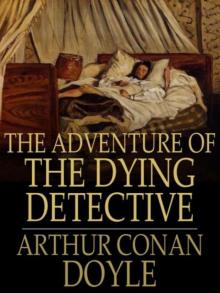 The Adventure of the Dying Detective
The Adventure of the Dying Detective The Man from Archangel, and Other Tales of Adventure
The Man from Archangel, and Other Tales of Adventure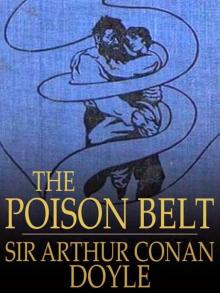 The Poison Belt
The Poison Belt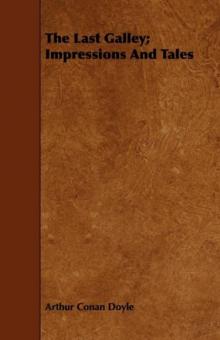 The Last Galley; Impressions and Tales
The Last Galley; Impressions and Tales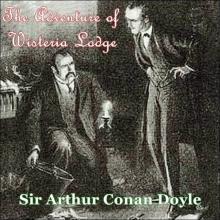 The Adventure of Wisteria Lodge
The Adventure of Wisteria Lodge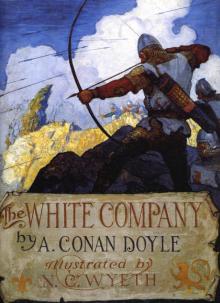 The White Company
The White Company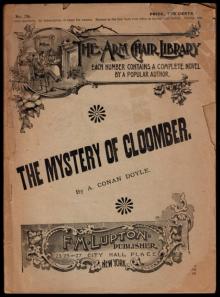 The Mystery of Cloomber
The Mystery of Cloomber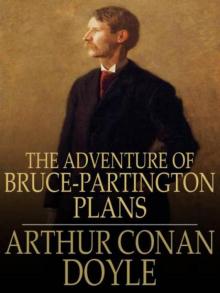 The Adventure of the Bruce-Partington Plans
The Adventure of the Bruce-Partington Plans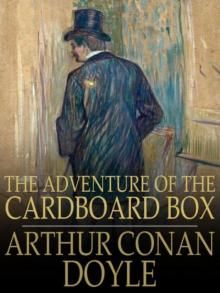 The Adventure of the Cardboard Box
The Adventure of the Cardboard Box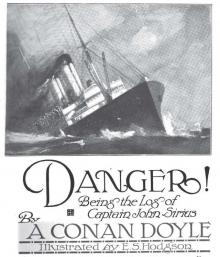 Danger! and Other Stories
Danger! and Other Stories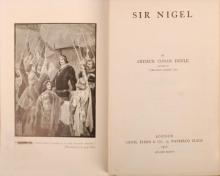 Sir Nigel
Sir Nigel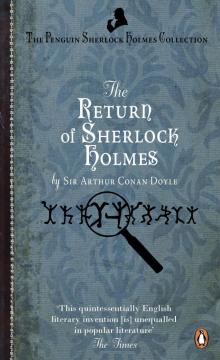 The Return of Sherlock Holmes
The Return of Sherlock Holmes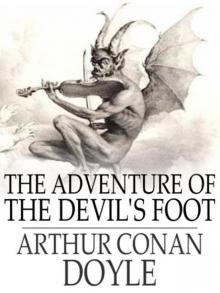 The Adventure of the Devil's Foot
The Adventure of the Devil's Foot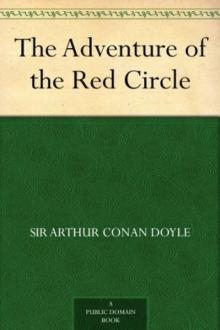 The Adventure of the Red Circle
The Adventure of the Red Circle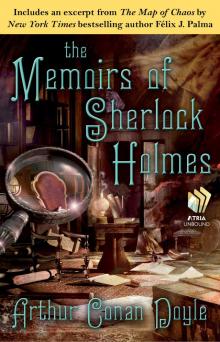 The Memoirs of Sherlock Holmes
The Memoirs of Sherlock Holmes The Adventure of the Yellow Face
The Adventure of the Yellow Face The Adventure of the Norwood Builder
The Adventure of the Norwood Builder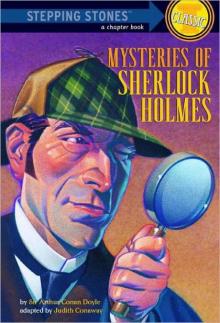 Mysteries of Sherlock Holmes
Mysteries of Sherlock Holmes The Adventure of the Missing Three-Quarter
The Adventure of the Missing Three-Quarter The Adventure of the Final Problem
The Adventure of the Final Problem A Scandal in Bohemia
A Scandal in Bohemia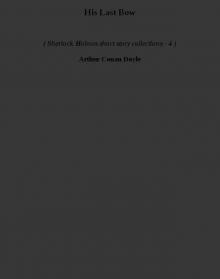 His Last Bow shssc-4
His Last Bow shssc-4 Beyond The City
Beyond The City The Adventure of the Gloria Scott
The Adventure of the Gloria Scott The Parasite
The Parasite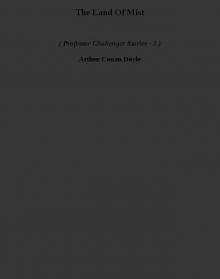 The Land Of Mist pcs-3
The Land Of Mist pcs-3 The Adventure of the Musgrave Ritual
The Adventure of the Musgrave Ritual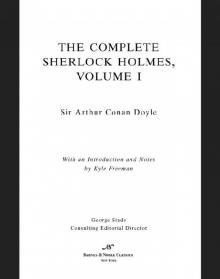 The Complete Sherlock Holmes, Volume I (Barnes & Noble Classics Series)
The Complete Sherlock Holmes, Volume I (Barnes & Noble Classics Series) The Adventure of the Stockbroker's Clerk
The Adventure of the Stockbroker's Clerk The Adventure of the Copper Beeches
The Adventure of the Copper Beeches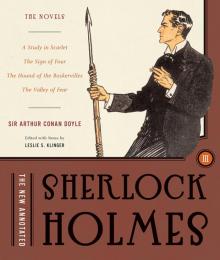 The New Annotated Sherlock Holmes
The New Annotated Sherlock Holmes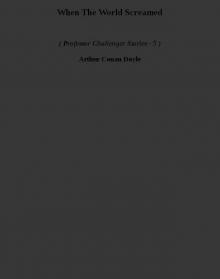 When The World Screamed pcs-5
When The World Screamed pcs-5 The Adventure of the Six Napoleons
The Adventure of the Six Napoleons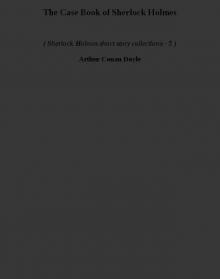 The Case Book of Sherlock Holmes shssc-5
The Case Book of Sherlock Holmes shssc-5 The Sign of Four
The Sign of Four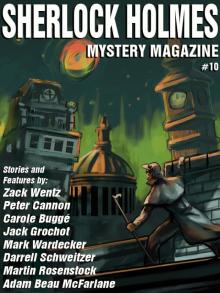 Sherlock Holmes Mystery Magazine #10
Sherlock Holmes Mystery Magazine #10 The Adventures of Brigadier Gerard
The Adventures of Brigadier Gerard The Adventure of the Second Stain
The Adventure of the Second Stain The Adventure of the Engineer's Thumb
The Adventure of the Engineer's Thumb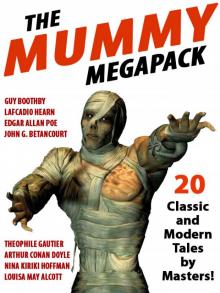 The Mummy Megapack
The Mummy Megapack The Disintegration Machine pcs-4
The Disintegration Machine pcs-4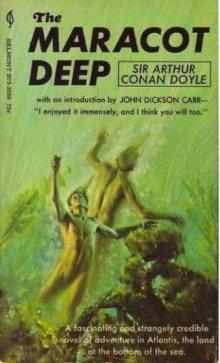 The Maracot Deep
The Maracot Deep The Five Orange Pips
The Five Orange Pips The Adventure of the Crooked Man
The Adventure of the Crooked Man The Adventure of the Blue Carbuncle
The Adventure of the Blue Carbuncle The Adventure of Silver Blaze
The Adventure of Silver Blaze The Adventure of the Solitary Cyclist
The Adventure of the Solitary Cyclist The Adventure of the Naval Treaty
The Adventure of the Naval Treaty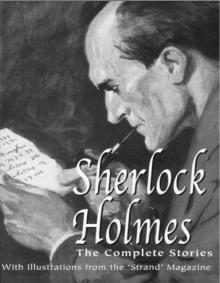 Sherlock Holmes. The Complete Stories
Sherlock Holmes. The Complete Stories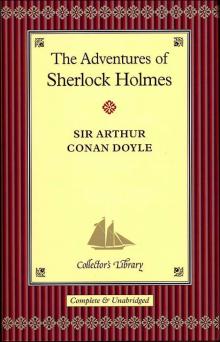 The Adventures of Sherlock Holmes (sherlock holmes)
The Adventures of Sherlock Holmes (sherlock holmes) The Adventure of the Empty House
The Adventure of the Empty House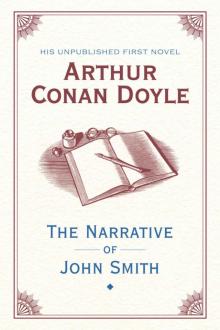 The Narrative of John Smith
The Narrative of John Smith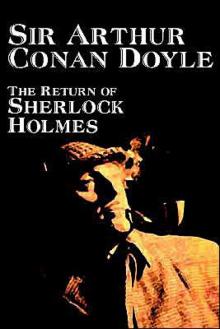 The Return of Sherlock Holmes (sherlock holmes)
The Return of Sherlock Holmes (sherlock holmes) The New Revelation
The New Revelation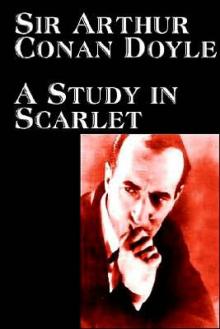 A Study in Scarlet (sherlock holmes)
A Study in Scarlet (sherlock holmes) The Vital Message
The Vital Message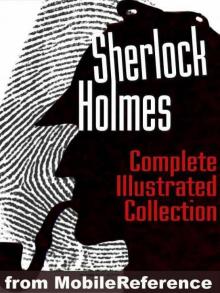 Sherlock Holmes Complete Collection
Sherlock Holmes Complete Collection Round the Red Lamp
Round the Red Lamp The Boscombe Valley Mystery
The Boscombe Valley Mystery The Adventure of the Beryl Coronet
The Adventure of the Beryl Coronet The Refugees
The Refugees The Adventure of the Three Students.
The Adventure of the Three Students.